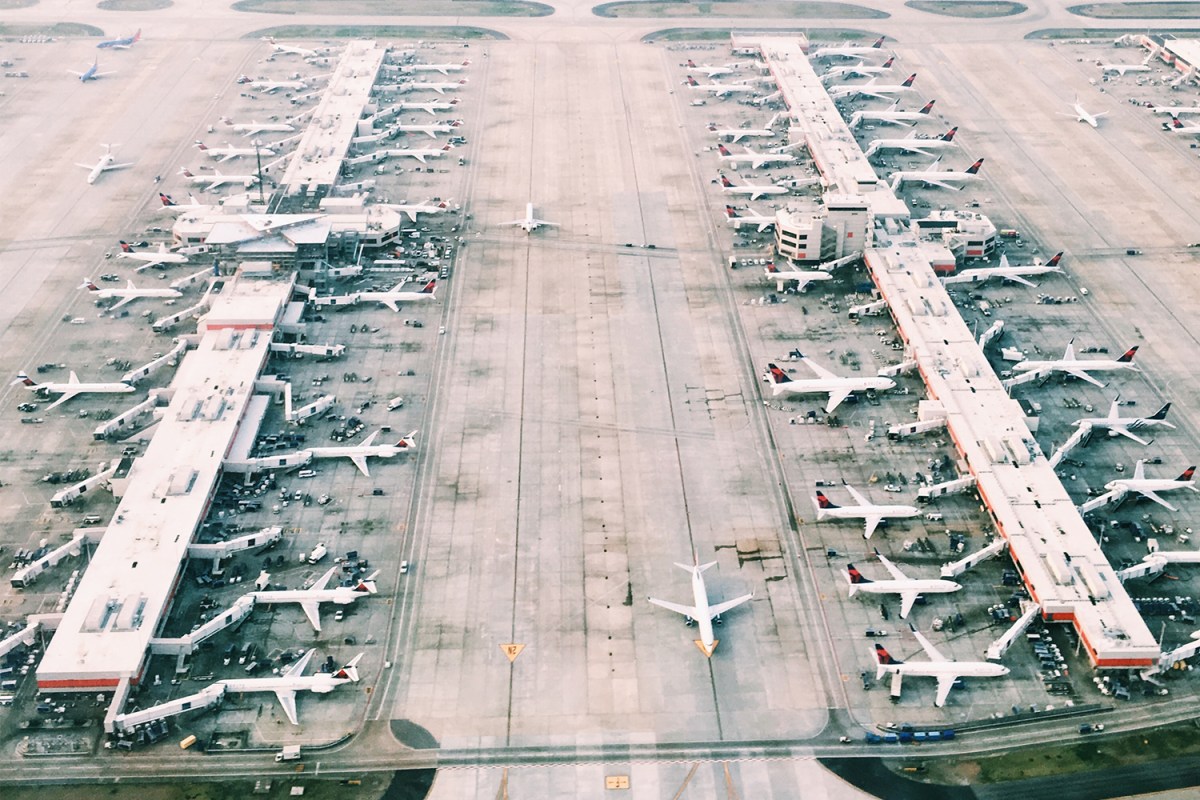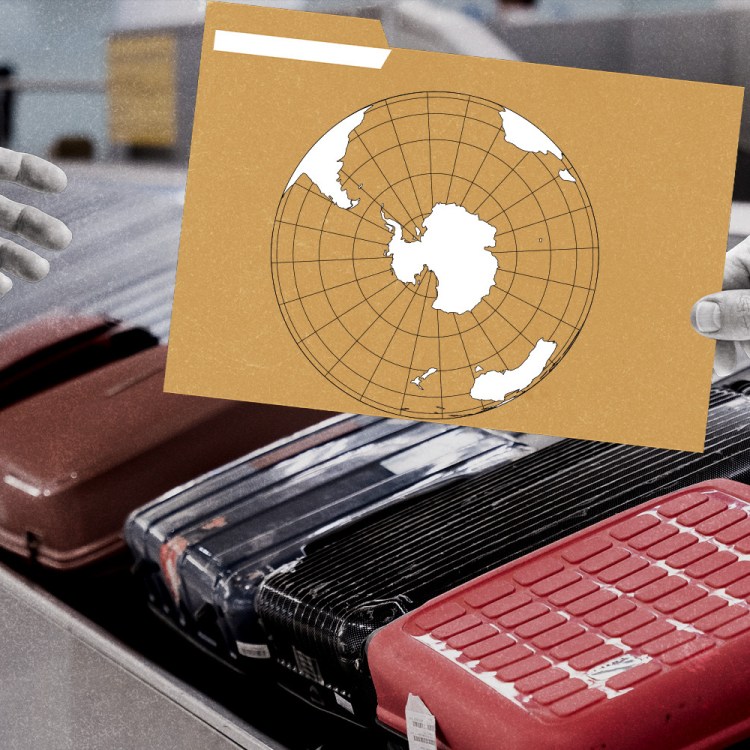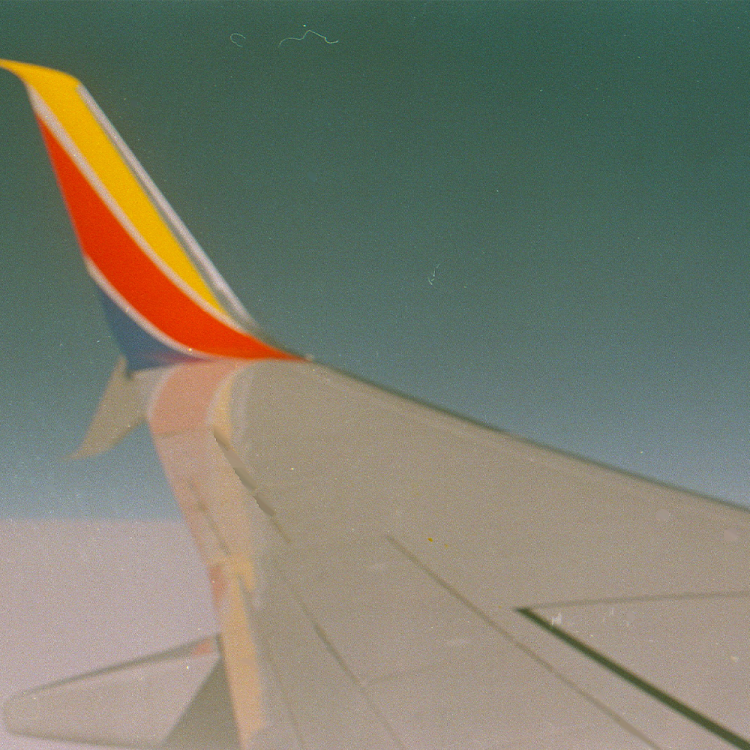Once a week, I get an email from Sun Country Airlines offering cheap nonstop flights, which makes me consider taking a spontaneous trip. Whenever booking a trip far in advance, I track flight prices using the Hopper app, biding my time for the day that flights are cheapest. And at my day job, writing for this website, I’m tasked with helping readers travel smarter — which has included, in large part, both flash sales on plane tickets as well as apps, services and hacks to get you those same discounts at your leisure.
But what if that’s all wrong? What if those who can afford it should be willingly accepting to pay more to fly?
That question has cropped up in certain corners of late as we become more aware of how much air travel pollutes the planet. And spoiler alert for those who have missed out on these updates: it’s way more than you think.
For those of you about to click away because you’re sick of hearing how modern conveniences are hurting the planet, hold that click! You need to hear these stats: according to Swiss nonprofit Myclimate, which offers simple tools to estimate your carbon emissions, a roundtrip flight in economy class from New York’s JFK airport to France’s Charles de Gaulle airport emits about 2.2 metric tons of carbon dioxide per passenger. According to the EPA, that’s about half of the CO2 a typical car emits in a year.
That’s bad. And as the New York Times reports, it could get worse: “Commercial flying accounts for about 2.5% of global carbon emissions today but without concrete steps, that number will rise as global air travel increases.” Yes, rise, even though we’ve all been warned that we need to halve carbon pollution by 2030 to avert climate catastrophe.
It’s enough to make a person feel ashamed for taking a weekend trip to Europe. I’ll own up to it. A year ago I took a work trip to Ireland for just 48 hours. And for that, I certainly feel what the Swedish call flygskam — literally, “flight shame.” As Quartz notes in its deep dive on the growing phenomenon, the phrase describes “the sinking feeling you get when you realize your trip to Miami or Lisbon might be turning a polar bear out of its home.”
So what’s the solution here? Unfortunately, we don’t have one that’s immediately actionable. The most succinct advice we can offer is: fly less and be willing to pay more.
Why you should pay more to fly
Let’s tackle the “pay more” part of that equation first. You’ve probably heard about carbon offsets, which are basically programs you can buy into that reduce carbon emissions somewhere else to make up for the emissions you just created. Some airlines even have them built into your ticket buying (The Points Guy has a fairly comprehensive roundup). The problem with this practice is partially linguistic; “offset,” in a dictionary definition, means an “amount that diminishes or balances the effect of a contrary one.” But when we’re talking about carbon pollution, these offsets can only diminish, not balance.
A year ago I took a work trip to Ireland for just 48 hours. And for that, I certainly feel what the Swedish call flygskam — literally, “flight shame.”
Pollution, unfortunately, cannot be counteracted with something as simple as an additional $10 fee, especially when the place where that $10 goes has been hastily researched, which could conceivably be the case for most flyers. What’s more, the onus for carbon offsets — and actual reduction in carbon emissions — shouldn’t fall on the individual. (That said, it is better than nothing, and if you’d like purchase them be sure to do said research. Organizations like the NRDC are good resources.)
If it’s not on the individual, that means it’s on the airline or the country where the airlines fly. And as Reuters reported last week, one country is taking charge: “France will introduce a tax on airlines flying from its airports to help support the environment.” Yes, prices will go up, but the change will be hardly noticeable. In a provocative response to the tax, The Washington Post published the article “Europe’s ‘flight shame’ movement doesn’t stand a chance in the U.S.” The story cites airline expert Seth Kaplan, who told the outlet, “A reason why you’re unlikely to see U.S. airlines doing this in any kind of big way is that in the U.S., what’s the alternative?”
He’s right. Our country is sorely lacking in the travel alternatives that are abundant in Europe, notably high-speed rail. But there is a way to get U.S. airlines to pay more attention to carbon emissions: instead of spending your time finding the cheapest flight possible, spend your time researching the airlines that are the most environmentally responsible, whether by way of well-documented carbon offsets or more efficient aircraft. Then, be willing to pay more to do business with them.
And then there’s the simplest alternative, which is to fly less.
Why you should fly less
I must admit, telling Americans to fly less is a little scary. And right off the bat, I can hear two voices in my head. One is saying, My Instagram is full of friends flying around the world, why shouldn’t I do the same? The second, Are you saying that flying should be an expensive luxury only enjoyed by the one percent?
To the second voice, I’d point to Fast Company, which rightly notes in its look at France’s new airline eco-tax that not all flights are equal in pollution or necessity: “Placing a carbon tax on something like international air travel, which is typically a luxury and not a basic need, puts the burden of paying for carbon offsets on people who can most afford it and are emitting the most carbon.” Logically, that also leads to the fact that a lot of our international travel is indulgent, and trips should be thoughtfully considered rather than purchased on a whim.
The first voice is a little harder to reckon with, but it’s one of the most common arguments when it comes to cutting back our general consumption (and pollution) habits. If people in your life judge each other by their frequent flyer miles and destination bucket lists, what are you supposed to do?
Try thinking about it like this: The people who individually cause an outsized portion of airline pollution are leaders. They’re business leaders for whom flying is part of their job; they’re political leaders who hop about the country (and world) to govern; they’re thought leaders who travel to teach, speak and learn; and they’re social leaders for whom jet-setting seems necessary to their very existence. If you’re find yourself flying internationally multiple times a year, you are in this group. And when it comes to leadership, one member of Congress recently described it this way:
People think of leadership as this glamorous, powerful thing. To be a leader is to come first, to set the agenda. But what people don’t [realize] is that leadership is also enormously difficult. Leadership is a responsibility. Leadership is not fun. Leadership is about doing things before anybody else does them.
That would be U.S. Representative Alexandria Ocasio-Cortez, who recently spoke with activist Greta Thunberg for a recent climate issue of The Guardian’s magazine. As it pertains to this conversation, if Americans want to be leaders, actively considering the impact of each and every flight we take (and whether or not we need to take it) is part of that responsibility.
Sure, skipping out on that unbeatable deal to Milan might be difficult at first. But hey, Thunberg has given up flying for good, and she’s a teenager, so the least you can do is cut back.
The Charge will help you move better, think clearer and stay in the game longer. Subscribe to our wellness newsletter today.

























